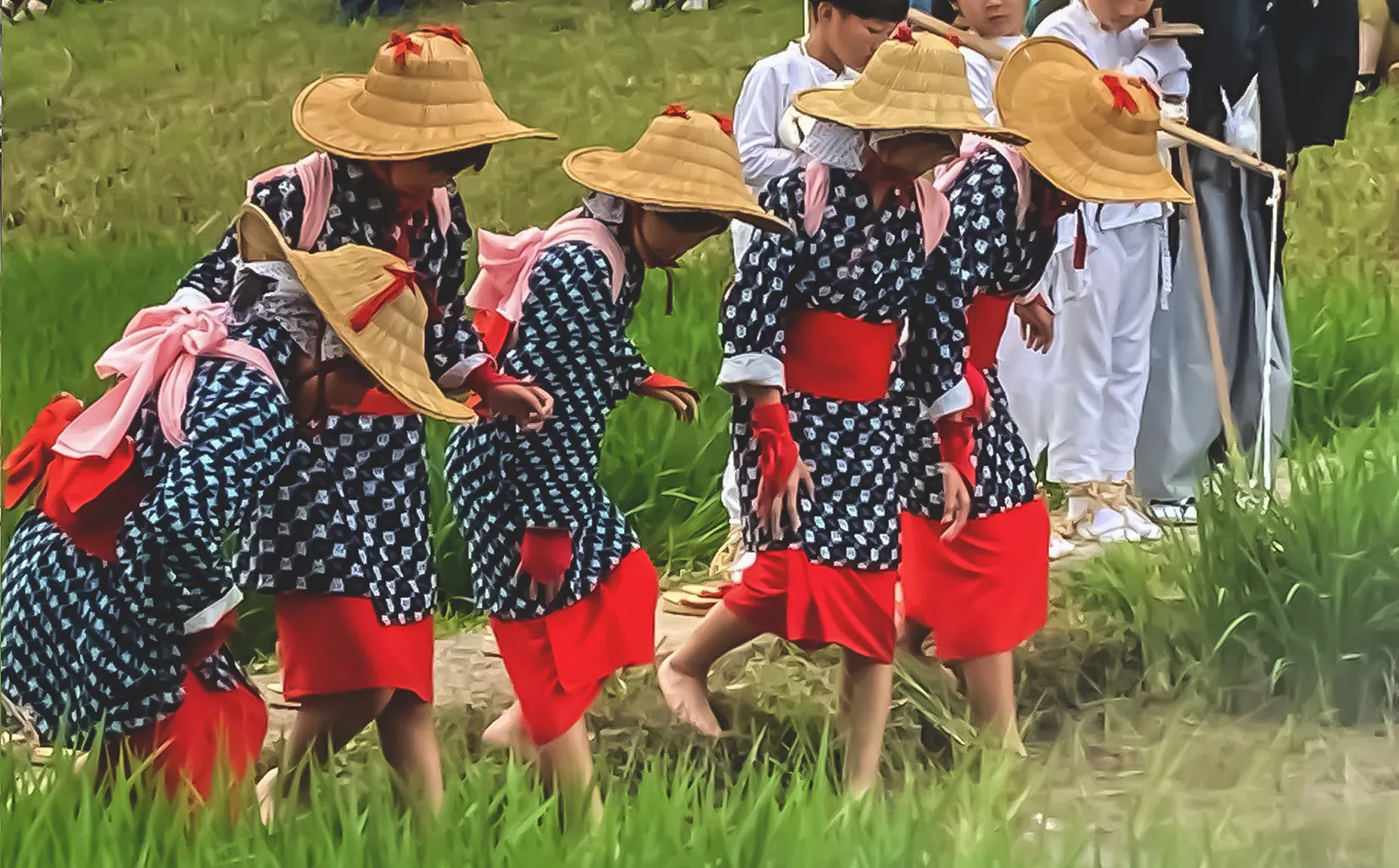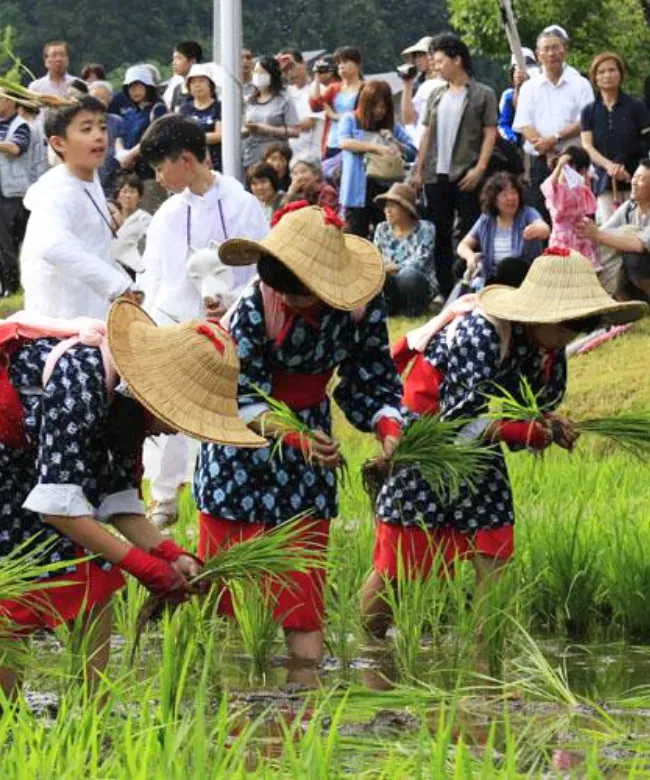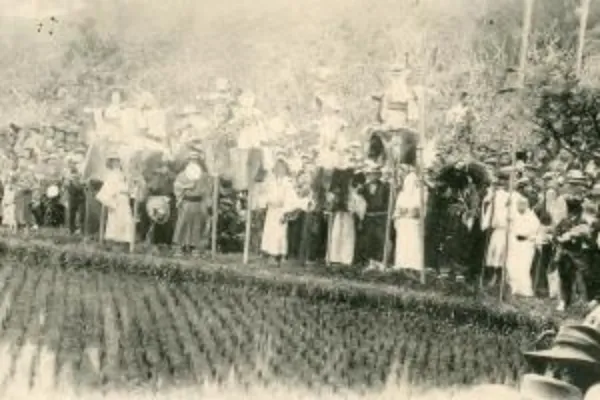
Festivals are
ceremonies to please the gods.
A shrine is a place where gods are invited and worship is offered to the gods who have settled there,
and it is this worship of the gods that makes up the “festival.”
Festivals are rituals to express gratitude to the gods and the forces of nature, and to pray for good
harvests, safety, and prosperity.
Festivals
Keitoku Inari Shrine Festival
Our shrine’s festivals include the Rice Planting Festival, which has been
designated as
an Intangible Folk Cultural Property of Japan, the Hatsuuma Festival,
which is held to
commemorate the day when the deity of Fushimi Inari descended upon Mount Inari,
and the
Nukiho Festival, an agricultural ritual.
February:Hatsuuma Festival
July:Rice Planting Festival
October:Nukiho Festival
November:Hatsuuma Festival and Niiname Festival
Annual Festival
(Rice Planting Festival)
The Rice Planting Festival is our largest festival event, and takes place on the day of the seventh month of
the month of summer. A portable shrine accompanied by numerous offerings parades through the town, and a
rice-planting ritual is held, during which prayers are offered for a good harvest.
The rice planting festival has a long history and is said to have been founded around 500 years ago.
The rice planting festival fell into disuse for a time around the third year of the Meireki era (327 years
ago), but when it was revived in the fifth year of the Tenpo era (150 years ago), the original rice planting
song was supplemented by Sawada Natare, a great scholar and poet of the Aizu domain, and Uragami Shūkin, a
samurai of the same domain who was also skilled in gagaku, composed the song in the style of Etenrakucho,
and it has been sung to this day.
Annual festival (rice planting festival) July 1st and 2nd, Hangesho Day

Rice Planting Festival Song

Hatsuuma Festival
This is a festival held to commemorate the day when the deity of Fushimi Inari descended to Mount Inari. It is held at Inari shrines all over the country to pray for bountiful harvests and safety in the home. Our Hatsuuma Festival is held in February and November.
Nukiho Festival
This is an agricultural ritual in which ripe rice is harvested and thanks are given for the year’s bountiful harvest. Our shrine holds this ritual every October.
Niiname-sai Festival
The ceremony in which the Emperor offers new grains to the gods of heaven and earth to express his gratitude and then eats them himself is called Niiname-sai. Our company also holds this ceremony in November.
